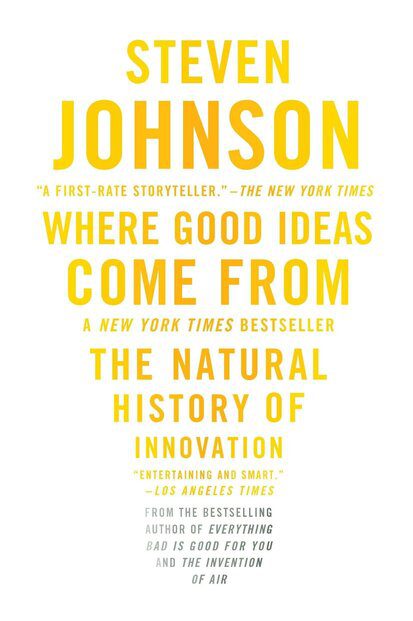Where do great ideas come? That is the question that author and media theorist Steven Johnson sought to answer in his book,Where Good Ideas Come From: The Natural History of Innovation. He identifies the seven key patterns behind genuine innovation, and traces them across time and disciplines.
Chance favours the connected mind.
“This is a book about the space of innovation. Some environments squelch new ideas; some environments seem to breed them effortlessly. The city and the Web have been such engines of innovation because, for complicated historical reasons, they are both environments that are powerfully suited for the creation, diffusion, and adoption of good ideas. Neither environment is perfect, by any means. (Think of crime rates in big cities, or the explosion of spam online.) But both the city and the Web possess an undeniable track record at generating innovation”
Our thought shapes the spaces we inhabit, and our spaces return the favor. The argument of this book is that a series of shared properties and patterns recur again and again in unusually fertile environments.
